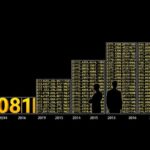BRICS Maneuvering May Propel Bitcoin as a Hedge Against Dollar Decline
The BRICS alliance’s de-dollarisation strategy is set to enhance Bitcoin’s status as a hedge against dollar depreciation, according to analyst Noelle Acheson. As these nations explore alternative payment systems using their currencies, uncertainty surrounding the US dollar is directing more investors towards Bitcoin and other commodities, positioning Bitcoin as a key asset amid geopolitical shifts and rising national debts.
The ongoing geopolitical shifts within the BRICS alliance—comprising Brazil, Russia, India, China, and South Africa, as well as newer members like Iran and the UAE—are poised to have a significant impact on the global financial landscape, particularly concerning Bitcoin. According to macro analyst Noelle Acheson, the movement towards de-dollarisation advocated by BRICS will cultivate a favorable environment for Bitcoin as it emerges as a valuable hedge against the declining prominence of the United States dollar in international trade. As representatives of these countries convened recently to deliberate on alternatives to the dollar-dominated Swift payment system, there is increasing speculation surrounding the potential adoption of national currencies for trade. While Bitcoin may not be the direct alternative, its status as a safeguard against dollar depreciation is expected to strengthen. Acheson articulates that, “Bitcoin’s narrative as a hedge against dollar debasement will strengthen, as weakening global demand for dollar-based trade, at a time of increasing supply, should pull the dollar down in relative terms.” Although the dollar remains predominant, accounting for a significant portion of global GDP and stock markets, the perceived threats to its supremacy invigorate interest in hedge assets. Speculators argue that Bitcoin, noted for its scarcity and independence from traditional financial systems, gains traction in an environment marred by rising national debts and inflationary pressures. Prominent investors, such as billionaire Paul Tudor Jones, have voiced that in light of escalating US national debt comparable to GDP, investments in Bitcoin and gold are increasingly favorable compared to bonds. In conclusion, the BRICS initiative to curb dollar dominance, while not immediately threatening the dollar’s reserve status, undoubtedly enhances Bitcoin’s appeal as a financial hedge amidst prevailing economic uncertainties and shifts in geopolitical alliances. Proponents contend that such developments will sustain an elevated demand for Bitcoin and similar assets as investors seek to navigate the complexities of contemporary financial markets.
The BRICS nations—Brazil, Russia, India, China, and South Africa—represent a significant alliance that collectively symbolizes over one-third of the world’s GDP. Recently, these countries have sought to reduce their reliance on the US dollar, prompting discussions about a new international payment system that favors their national currencies. This move may not only impact global trade but also presents opportunities for alternative assets such as Bitcoin. Increased debt levels and economic instability stimulate investor interest in hedging assets like Bitcoin, which proponents argue can provide safety during turbulent times. The situation is further compounded by the contrasting national interests and dissatisfaction of BRICS countries with Western economic policies.
In summary, the BRICS nations’ efforts to diminish dollar dominance are likely to fortify Bitcoin’s role in the financial market as a reliable hedge asset. Although the dollar is not at immediate risk of losing its global reserve currency status, the dynamics introduced by the BRICS alliance signal a shift that could benefit Bitcoin and other decentralized assets as investors seek refuge from economic uncertainties and inflationary pressures.
Original Source: www.dlnews.com







Post Comment